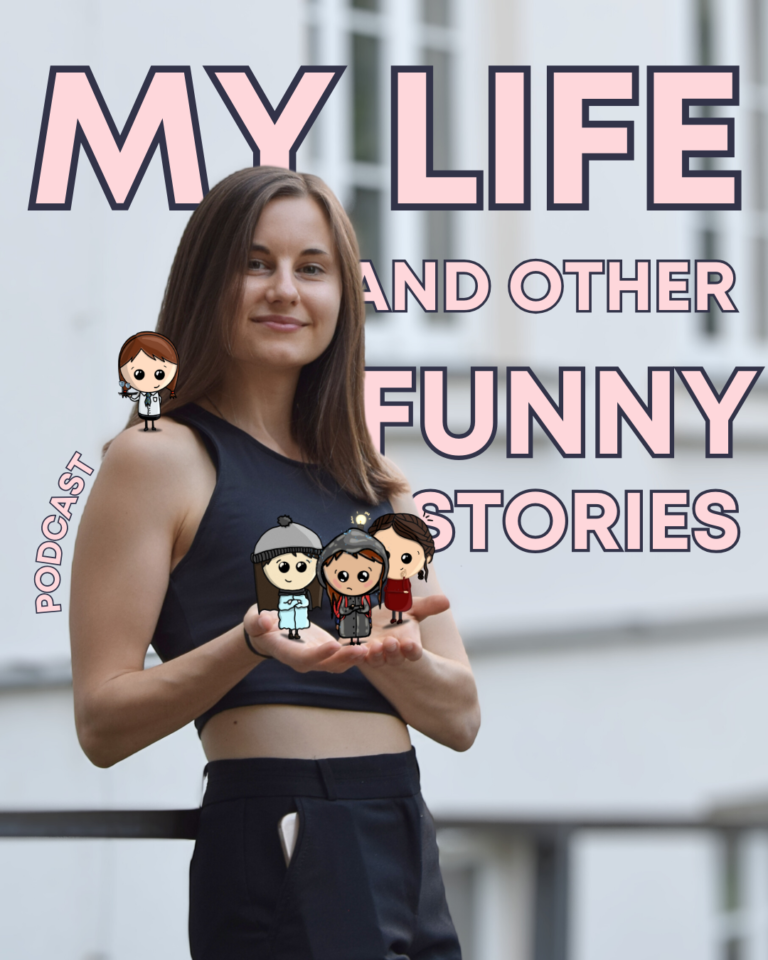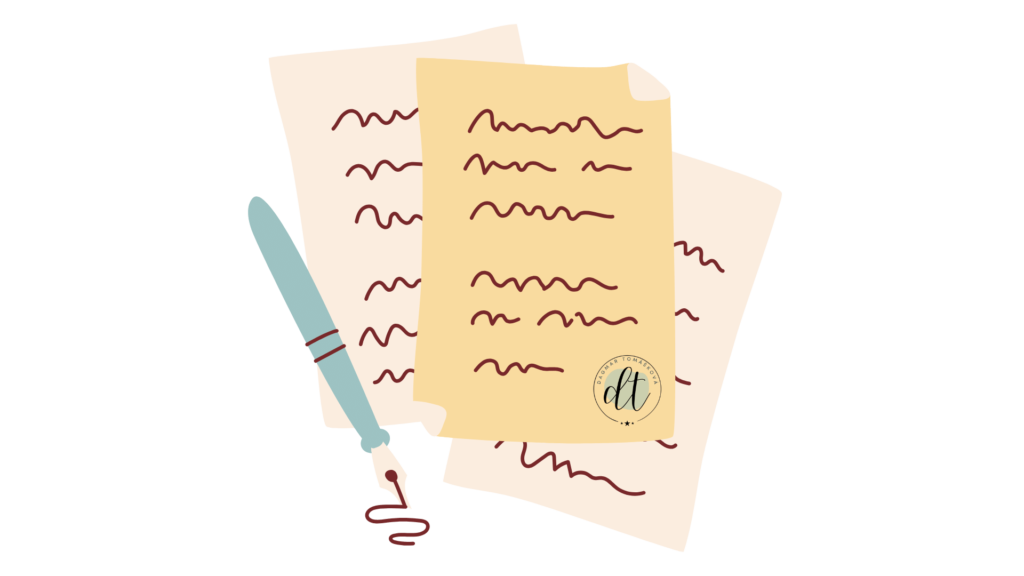
Ep.58: Explaining PAST PERFECT Through Stories

Today’s episode is going to be a bit different from my usual ones. We’re going to dive into grammar, and not just any grammar, but one of those tricky tenses—past perfect, or in Czech, předminulý čas. I know, it sounds a little boring, but I’ll try to make it fun with some stories from my own life to help you understand this tense better. It will be a little similar to the episode about present perfect so I hope you will like it.
Everyone always wants to know the past perfect. To be honest, it is not like the most used English tense but if you are already at least an intermediate or upper-intermediate learner, it is good to know about it.
LISTEN TO THE EPISODE HERE:


WRITTEN TRANSCRIPTION OF THE PODCAST
Hello and welcome to my podcast, My Life and Other Funny Stories. My name is Dagmar Tomášková, I’m an English tutor and coach, and I’ve created this podcast for English students who want to improve their oral comprehension. As always, you can find the transcription of this episode and a vocabulary list in the notes of the podcast.
Today’s episode is going to be a bit different from my usual ones. We’re going to dive into grammar, and not just any grammar, but one of those tricky tenses—past perfect, or in Czech, předminulý čas. I know, it sounds a little boring, but I’ll try to make it fun with some stories from my own life to help you understand this tense better. It will be a little similar to the episode about present perfect so I hope you will like it.
Everyone always wants to know the past perfect. To be honest, it is not like the most used English tense but if you are already at least an intermediate or upper-intermediate learner, it is good to know about it.
Also, I have a cold so if I sound a little weird, that’s why, I am really sorry about that but it is what it is. Alright, let’s go.
What is Past Perfect?
First, let’s quickly look at how we form the past perfect. Take the sentence, I had finished my homework before dinner. Here, the past perfect is “had finished”. The structure is simple:
- First, we have the auxiliary verb had—yes, just one verb this time, and it’s the same for all subjects (no “has” or “have” to worry about!).
- Then we add the past participle of the main verb. For regular verbs, this is the same as the past simple form, like played from play. For irregular verbs, it’s the third form. For example, gone from go. So: go, went, gone.
Easy, right? Now let’s look at the uses of past perfect, because this is where it gets a bit more interesting. Past perfect is all about the relationship between two past events, where one happened before the other. Think of it as the past of the past. I’ll explain with some funny stories, so let’s get started!
1. Talking About Actions Completed Before Another Past Action
The past perfect is often used to talk about something that happened before another action in the past. For example, By the time I arrived, the movie had already started. Here, we’re talking about two actions in the past—me arriving and the movie starting—but the movie started before I arrived, so we use past perfect for the earlier action. Or another example might be: “When I arrived, they had already left.” Here I want to say that everyone left BEFORE I arrived and when I came, no one was there.
Let me tell you a little story to explain this.
I went to many summer camps as a child and we always took the bus to get there. We were all quite excited to have fun, play games and just enjoy our summer. When we came to the campsite, the instructors had already prepared everything. They had built the tents, they had cooked the first meal and then they had been waiting for us to arrive. All of this happened BEFORE we even arrived and so that is why we can use past perfect for this event.
2. Explaining Causes of Past Situations
Another common use of past perfect is when you want to explain why something happened in the past. For example, I was late because I had missed the bus. The past perfect here is had missed because it explains why I was late.
Here’s a real-life example from when I was a teenager:
One time, I showed up late to school because I had forgotten to set my alarm the night before. I remember waking up in a panic, realizing that the school day had already started! I rushed to get ready, but by the time I arrived, the first class was halfway over. My teacher asked why I was late, and I said, I had forgotten to set my alarm!. Again, one thing happened before the other – I forgot to set my alarm and only after that I was late. So in this case we can use the past perfect as well.
3. Describing Unfulfilled Hopes and Regrets
We often use the past perfect to talk about things we wish had happened but didn’t. In these situations, we use phrases like I had hoped, I had thought, or I had wanted.
Here’s a story from when I wanted to go to my first spartan race as a volunteer:
There was a spartan race in Slovakia and I was really excited about it. I had planned everything perfectly—the food, the clothes, everything. But guess what? The day before, I had eaten something bad…or something like that. When we arrived, I got the biggest stomachache I had ever experienced. I had hoped to have a great time, but, unfortunately, I missed out.
4. When Two Actions Happen Close Together
Sometimes, we use past perfect when two events happen close together but we want to show which happened first. For example, I had just sat down when the phone rang. You could almost tell this story without the past perfect, but using it makes the order of events clearer.
Practice Time!
Now that you know the basic uses of the past perfect, try to think of situations where you could use it. Maybe you’ve missed a bus or forgotten something important before an event. Try forming a sentence like, I had forgotten to charge my phone, so it died halfway through the day.
Or, here I will give you a few situations and you try to come up with the reason why that happened – so you are trying to explain what had happened before. I will give you an example:
The scenario: Anna was very cold.
The explanation: Anna was very cold because she had forgotten her coat.
Do you get it? Alright, let’s try it:
Scenario number one: I wasn’t hungry because…
Scenario number two: Lily couldn’t fall asleep because…
Scenario number three: The printer didn’t work because…
Feel free to send me a message on Instagram with your own past perfect sentences. I’d love to see what you come up with!
That’s all for today. I hope you enjoyed this episode and that you found the past perfect a little less scary! Don’t forget to check the podcast notes for the transcript and vocabulary list, and if you liked this episode, leave me a five-star rating and share it with your friends. See you next time!

VOCABULARY LIST
dive into – ponořit se do
weird – divný
auxiliary – pomocné
to be excited to do something – být na něco natěšený
alarm– budík
I had hoped– doufal jsem
I had thought– myslel jsem
I had wanted– chtěl jsem
volunteer– dobrovolník
scenario– scénář